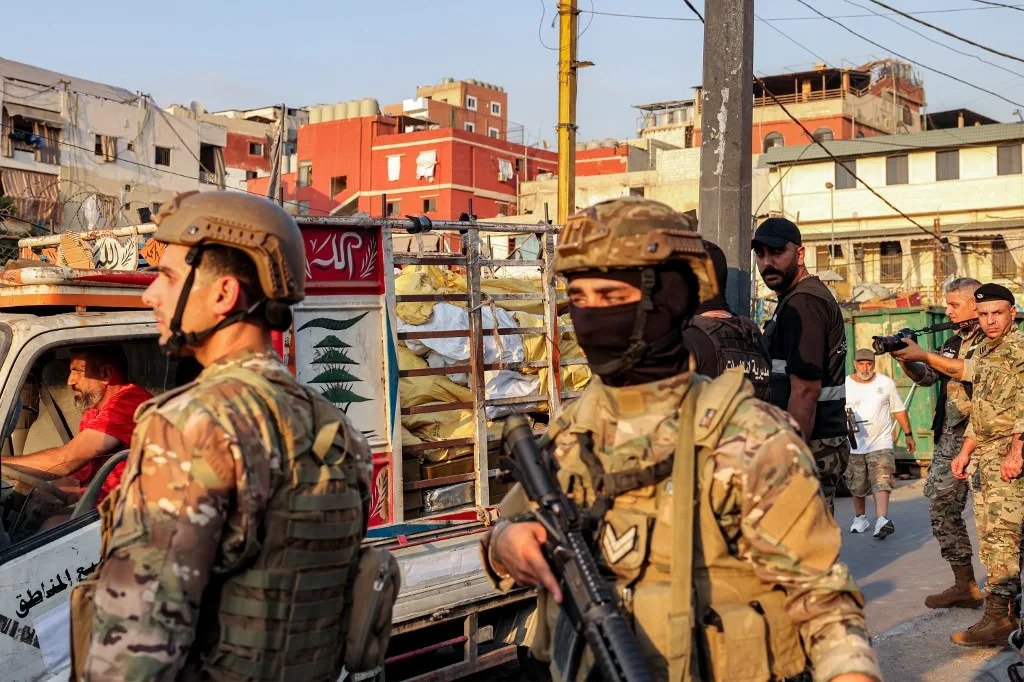Lebanon has launched a formal disarmament operation targeting Palestinian armed factions in its refugee camps, marking the most significant state assertion of authority in years. The initiative began on August 21, with the handover of weapons at the Burj al-Barajneh camp on Beirut’s outskirts, prompted by a May agreement between Lebanese President Joseph Aoun and Palestinian President Mahmoud Abbas, affirming exclusive state control over arms.
Fatah, the Palestinian faction aligned with Abbas, handed over weapons believed to be illegally smuggled within the previous 24 hours, while insisting that personal and organizational arms remain untouched. Lebanese troops collected firearms and munitions displayed in bags atop pickup trucks; more deliveries from Burj al-Barajneh and additional camps are anticipated in the coming weeks.
Despite the coordinated effort, not all factions have agreed to cooperate. Hamas and Palestinian Islamic Jihad have distanced themselves from the plan, with leaders describing the handover as an internal move by Fatah rather than a camp-wide disarmament. They argued that arms reflect the “right of return” and a legitimate defense stance—a stance that underscores deep divisions among Palestinian groups.
Lebanese authorities view the process as both symbolic and strategic. It forms one pillar in a broader campaign to consolidate weapons under state authority, a principled commitment reinforced by the November truce with Israel, supported by the United States, which restricts arms to only six designated state security forces. The army has also been tasked with devising a plan to similarly disarm Hezbollah by the end of the year.
UNRWA estimates that Lebanon hosts around 200,000 Palestinian refugees, many of whom reside in 12 legally ambiguous camps largely controlled by armed factions. Camp residents have historically relied on non-state groups for security and representation—a legacy of displacement, marginalization, and conflict. Analysts caution that maintaining momentum will require diplomatic finesse, as disarming camps without offering political or socioeconomic incentives could inflame tensions, especially in more volatile camps like Ain al-Hilweh.





